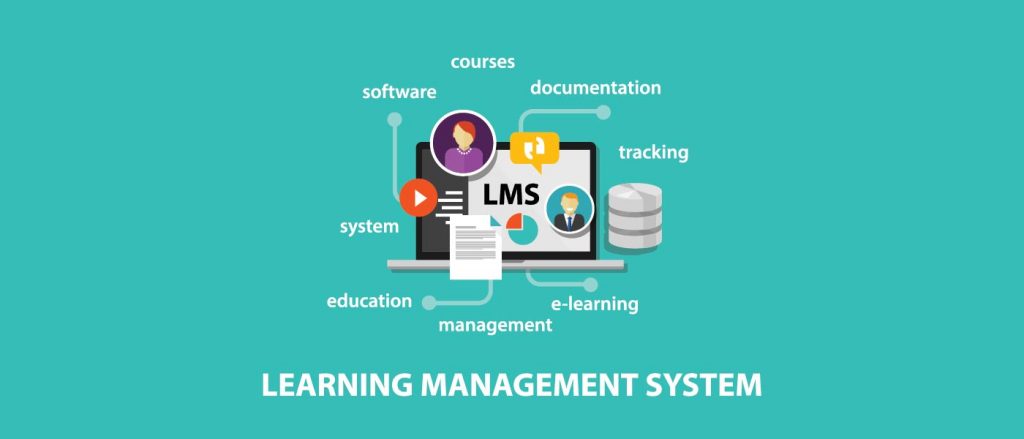Learning Management System: Why Your Business Needs It?
Top 6 Reasons Why Implementing LMS Is Crucial for Your Business
With the rise of technology implementation in various business processes, the LMS market is forecasted to reach USD 22.4 billion by the year 2023. This figure was estimated to be USD 9.2 billion in the year 2018. With the increasing rates as shown in these figures, it is evident that businesses leverage a multitude of benefits from implementing a Learning Management System.
The major drivers towards the increased adoption of LMS in businesses include digital learning, enterprise mobility, BYOD (Bring Your Own Device) policy, Artificial Intelligence technology implementation, Machine Learning, and so on.
What Is An LMS?
A Learning Management System is a software application that offers online training, educational content, and several crucial strategies for implementing LMS into a system. A quick example of an LMS is the SaaS (Software as a Service), which is a kind of web-based (internet-based) LMS.
SCORM (Sharable Content Object Reference Model) and LTI (Learning Tools Interoperability) are two strategies via which content is integrated into an LMS, which is included in the LMS application. Let us walk through the key benefits that drive businesses in adopting a Learning Management System.
Why Do Businesses Require An LMS Implementation
An LMS can help a business, streamline its procedures and improve the overall efficiency of the workforce. To sustain growth in businesses, it is crucial that industries employ an LMS into their processes. Let us walk through the major compelling reasons why it is necessary to implement an LMS for a positive business outcome:
1. Flexibility In Accessing Information
With LMS, employees can access information anytime, anywhere via their desktop, laptop or smartphone. Critical decisions can be made through the instant availability of data. With the advent of modern LMS platforms, centralized information can be easily accessed. The data accessed will be stored digitally, such as user profiles, training progress, and so on. This not only makes the data searchable but also reduces the time spent to retrieve the required information.
2. Cost-effectiveness
An LMS platform can cut down costs associated with training expenses. Training and onboarding generally involve hiring multiple resources. For instance, a hiring manager has to train every newly joined employee in the company software and other implications. But with an efficient LMS implemented, the training can be customized.
Additionally, providing online training can significantly reduce time and costs. Implementing a centralized location for training can avoid the need for sending employees to get trained in far off places. Since the data can be reused and accessed whenever required, it eliminates the need for excessive paper documentation.
3. Improved Productivity And Profitability
According to a recent study by ASTD (American Society For Training And Development) that was conducted on 2500 firms, the firms that invested in training had achieved a 24% higher margin than the rest. The study also found out that these firms had a 218% increased income per employee.
LMS ensures that the employees get a thorough training that can help them perform productively and efficiently. An LMS also ensures that multiple users are trained simultaneously at the same pace. When employees are productive, they become profitable as well.
An LMS can ensure the quality of the training provided to the employees via its data and analytics tracking. This includes factors such as the time duration of the training provided, how well performed is the training, and so on. The centralized training database of an LMS enhances the quality of training provided as well as significantly improves the productivity and profitability of the business.
4. Effective Employee Onboarding
Employee orientation or employee onboarding is a tedious process in many companies. When the employee onboarding process has a modern LMS platform implemented, it significantly reduces the employee churn rate. This, in turn, increases the productivity of the employees.
Third-party content can be easily deployed via an LMS platform. LMS works by enabling businesses to deliver, manage as well as track the hiring and training process of new employees. Being able to create courses, setting tests and assignments, and automating the process of onboarding are some of the major functionalities.
With an LMS onboarding ecosystem, an effective and efficient training and onboarding process are ensured.
5. Measuring ROI
According to industry analysts, the LMS market is expected to grow from today’s figure of $2.06 billion to over $7 billion by the year 2023. A Learning Management System is designed and deployed to deliver increased ROI to businesses in a multitude of ways.
The major return is in being able to replace traditional one-to-one training. This is a key cost saver. LMS is utilized as a centralized hub for housing large volumes of training as well as other content. LMS improves business outcomes by reducing travel expenses of employees sent for training externally and slashing down employee productivity losses.
An LMS calculates resources allocated and identifies existing inefficiencies in training. It also lets employees focus on the core parts of their job. This significantly reduces employee turnover as well.
6. Knowledge Retention With The LMS Centralized Hub
To drive innovation, it is crucial that the employees within an organization are intellectually capable. Technical know-how enhances the productivity of employees. Intellectual capital is thus one of the key benefits leveraged from an LMS.
LMS ensures that the information does not remain consolidated in a single location and that it is shared with all the resources. With an LMS, employee performance can be tracked easily. The employees who underperform can be provided with additional personalized training and retained.
To become an LMS expert and to identify the current inefficiencies or areas of improvement in your business, talk to our LMS strategists and software development experts today!
Stay up to date on what's new

Recommended Posts

22 Jul 2020 Education
Prepare for the Future of Digital Innovation with these 10 Services From Fingent
10 Services Offered by Fingent to Prepare Your Business for the Future of Digital Innovation Introduction Robotic Process Automation Business Continuity Planning Contactless Services Custom LMS | eLearning Business Process……

11 May 2018 Education
Ways to reduce L&D cost in your organization
Businesses increasingly rely on the capabilities of their workforce to gain an edge over the competition in the complex business landscape. Pressure on Internal Learning & Development teams have increased……

09 Mar 2018 Education
LMS of “Present” and Ways to Enhance It
In today's tech-neutral age, knowledge and skills are the key sources of competitive advantage. Smart enterprises institute Learning Management Systems (LMS) to harness and organize the corpus of knowledge available……

29 Dec 2017 Education
5 Tips for Choosing a Responsive Learning Management System
Learning is highly evolving in all facets of life and so are the systems that provide learning opportunities. The definite way to address the changing and growing requirements of employees……
Featured Blogs
Stay up to date on
what's new



















































